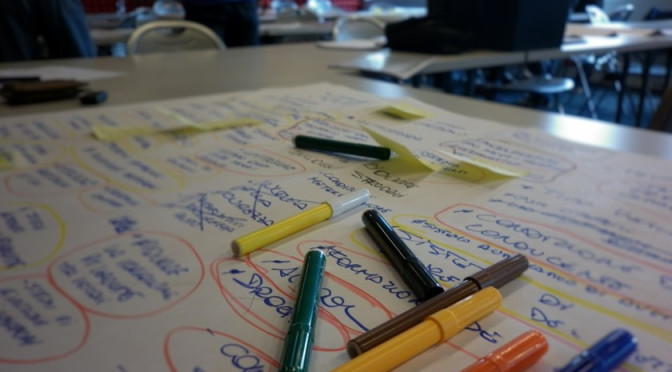I am sure most people have heard of the term “pre-writing,” but many people either do their writing without much premeditation or are unaware of their pre-writing processes and the benefits of these practices. This blog post will focus on the importance of pre-writing and the benefits it provides to those who use it intentionally in their writing process.
Writing is not a ubiquitous process. It doesn’t follow a certain format for everyone, but often we are taught we have a prompt or assignment and then we must complete the assignment following those guidelines. However, sometimes we struggle with certain assignments because we have no idea where to begin. The question then becomes, “how do I start this assignment and how can this process be improved upon?” The short answer is pre-writing.
Pre-writing facilitates the process of writing because it allows us to think more concretely about our assignment or topic. For example, if I have to write a paper on the government structure, it may be beneficial to create something like a concept map to break down exactly what that is comprised of. However, if I have a paper that requires answering a question like, “What is the benefit of contraception?”, then perhaps an outline may be better because it is conducive to finding reasoning and sources to support my answer.
How you can determine what pre-writing activities work for you?
According to Duke University research, one approach they suggest is to take the Myers-Briggs typological test then, based on those results, you can find out your writing personality. This is an interesting concept because, based on your personality traits, it may be easier to facilitate or accommodate your writing personality using a variety of pre-writing techniques. The site suggests that different aspects of a personality affect your needs as a writer. Depending on those needs, your pre-writing strategies may change or be adapted to accommodate them.
Types of Pre-Writing
- Focused Free-Writing
- Mind Mapping
- Brainstorming
- Listing
- Outlining
- Question Development
- Journaling
For more information about these and other pre-writing strategies, see the Planning & Invention page of the University Center for Writing-based Learning (UCWbL)’s website.
Why its important
Here’s the short list of reasons why pre-writing is important and how it can aid your writing process:
- It helps writers develop clear reasoning
- It helps writers find week points in arguments
- It increases efficiency by helping the writer map, plan, or brainstorm about their writing before beginning a first draft
- It helps a writer organize their thoughts
- It helps a writer process the order of those thoughts so they can organize them effectively for their audience
- It can facilitate a better understanding of audience and rhetorical situation
So, what pre-writing strategies do you use? Did I miss any? Feel free to share in the comments below, and add an additional resources that I missed!
Additional Pre-Writing Resources:
- Purdue OWL’s Pre-Writing Resource
- Study Guides’ Strategies
- University of California at Berkeley Pre-Writing Resource
- University of Kansas Pre-Writing Resource
- Duke University Pre-Writing Resource
Discover more from UCWbLing
Subscribe to get the latest posts sent to your email.


One reply on “Pre-Writing: Why it is an important part of the writing process”
Great post, Nat! I totally agree that certain forms of pre-writing cater to different genres of writing. Also, I found the bit about Duke University’s use of the Myers-Briggs Typological Test profoundly interesting, though I can’t recall if I ever took it myself. Anyway, my preferred methods of pre-writing include outlining, mind mapping, and even just free writing, which is essentially just writing everything that pops into my head over a period of time (anywhere from 20 minutes to an hour or more).